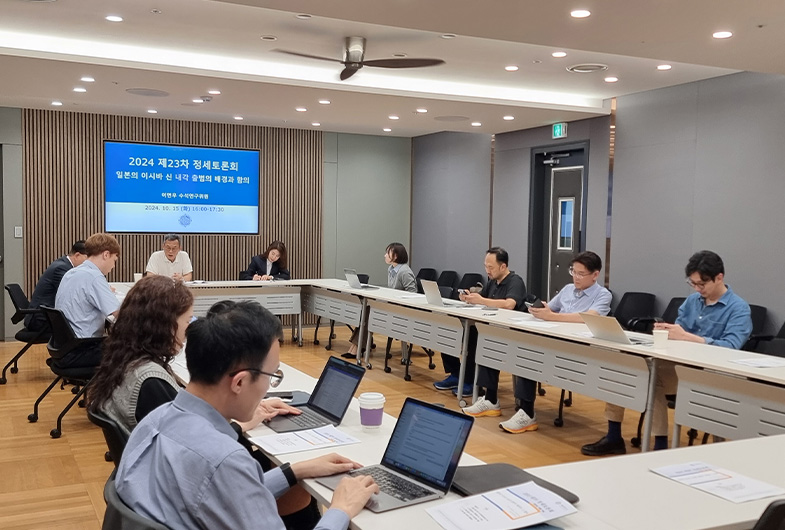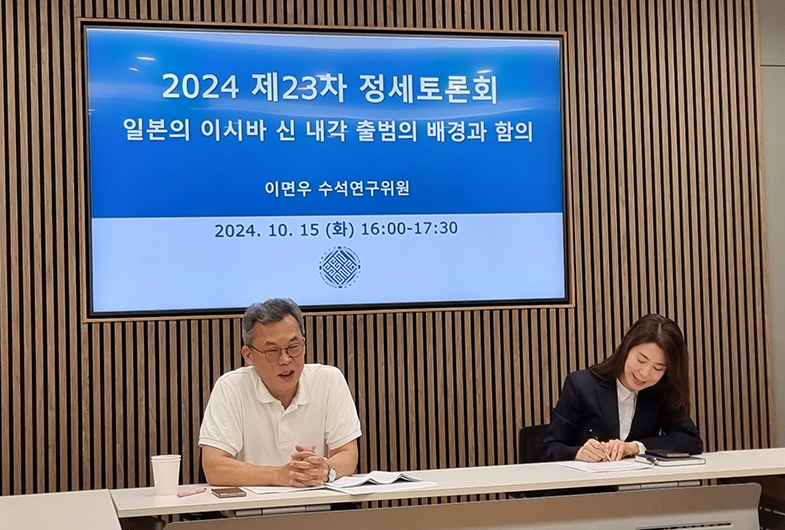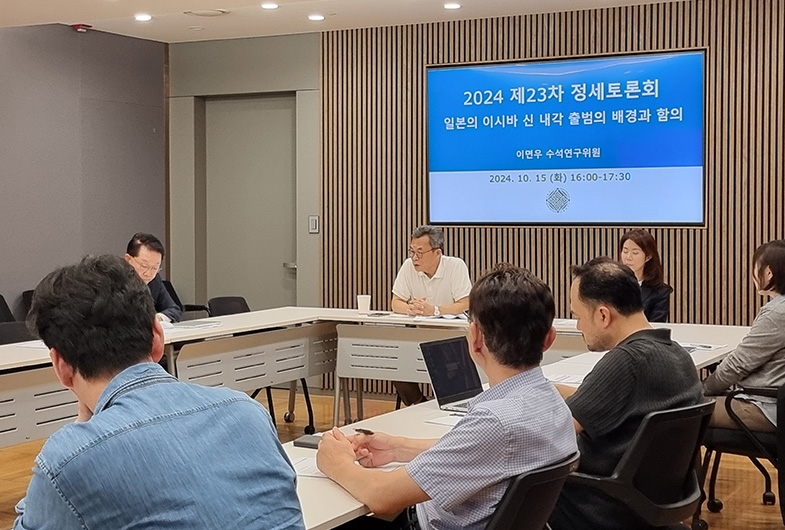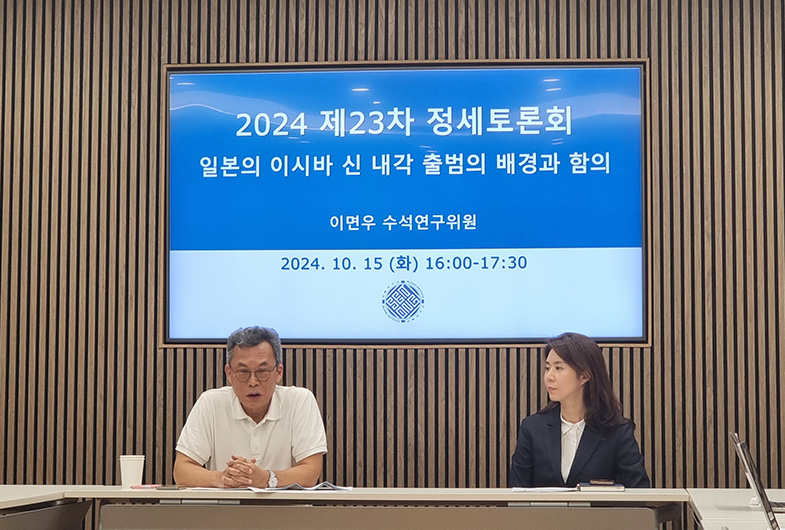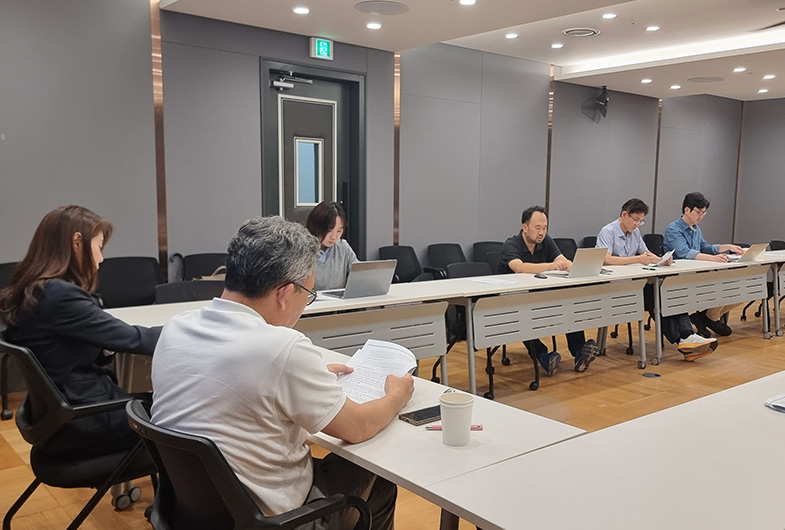On October 15th, Myon Woo Lee, Principal Fellow of Sejong Institute gave a presentation on "Japan's new Ishiba cabinet and its implications" at the 23rd Colloquium.
The discussion was moderated by Yoon Jung Choi, Vice President of the Sejong Institute.
The Ishiba cabinet's policy can be broadly categorized in two ways. One is the direction of self-reliance in modern nationalism, which can be seen in the active aspect of constitutional amendments and the introduction of the right to collective self-defense, and the other is pluralistic nationalism, which can be seen as pluralistic in emphasizing communication and includes proceduralist and pluralist aspects. South Korea's response to this is also considered an active utilization theory based on the perspective of national interests. In this aspect, we take an overview of how Prime Minister Ishiba was elected, what he will do in the future, and what the changes in the Liberal Democratic Party(LDP) are.
There are three main reasons for Ishiba's election. First, support for Shinjiro Koizumi gradually decreased during the campaign and debate process; second, Ishiba had long received high support from the general electorate and party members; and finally, the power struggle between the previous prime ministers reduced the rejection of Ishiba by his colleagues.
Ishiba's new cabinet has been active in constitutional reform and the introduction of collective self-determination. Self-reliance-based modern nationalism is behind the stance to tolerate the introduction of the "Right of Collective Self-Defense" by making the SDF an army by deleting the clause of Article 9(2) of the Peace Constitution. Furthermore, it will lead to the revision of the Security Treaty between the United States and Japan further strengthening the U.S.-Japan relationship.
The current bureaucrats in Ishiba's new cabinet are largely nonpartisan, and their selection is partly based on their ties to Ishiba. In other words, the cabinet appointments have three aspects: the exclusion of the Abe faction, the largest faction in the LDP, the inclusion of nonpartisans, and the equalization of factions.
Considering the circumstances, it is expected that Prime Minister Ishiba and his cabinet will focus on improving the economy and quality of life, which are the priority concerns of the people, rather than making radical moves and policies until next year's Upper House election, and that gradual changes will occur later.
